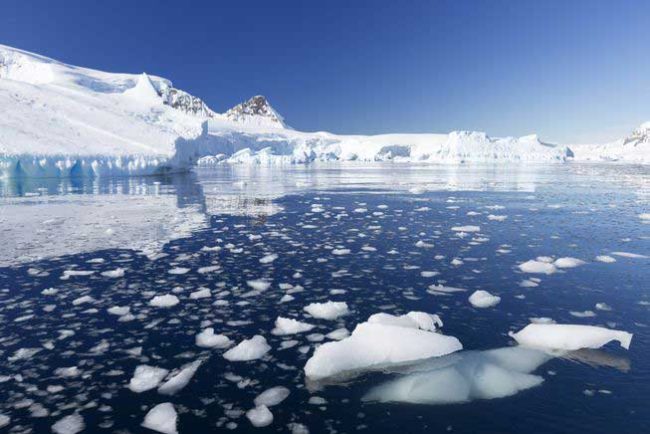
Carbon Brief has a nice video up in which Climate Scientists briefly answer a few key questions regarding the recent low’s of both the Arctic and also the Antarctic sea ice.
Let’s first ask – Who are “Carbon Brief”?
Their “About Us” page lays it all out …
Carbon Brief is a UK-based website covering the latest developments in climate science, climate policy and energy policy. We specialise in clear, data-driven articles and graphics to help improve the understanding of climate change, both in terms of the science and the policy response. We publish a wide range of content, including science explainers, interviews, analysis and factchecks, as well as daily and weekly email summaries of newspaper and online coverage.
That perhaps does not quite fully enable you to grasp who they are. These are the professions, the folks whose entire career is climate science, reaching out. Their writing staff includes deeply experienced science journalists, many of whom also have relevant PhD degrees.
Their list of contributing editors is also very much a whose-who in the field of climate science in the UK. It includes …
- Richard Allan (@rpallanuk) – professor of climate science at the department of meteorology, part of the University of Reading with affiliation to the National Centre for Atmospheric Science, the National Centre for Earth Observation and the Walker Institute.
- Mark Brandon (@icey_mark) – reader in polar oceanography at the Open University’s department of environment, earth and ecosystems.
- Piers Forster (@piersforster) – professor of physical climate change at the University of Leeds, where he has been since 2005.
- Gabriele Hegerl – professor of climate system science at the School of Geosciences at the University of Edinburgh
- Simon Lewis (@simonllewis) – professor in global change science at University College London. He holds an equivalent position at the University of Leeds.
- Tim Osborn (@TimOsbornClim) – director of the Climatic Research Unit and a professor of climate sciencewithin the School of Environmental Sciences at the University of East Anglia
- Camille Parmesan – professor in the Marine Institute at Plymouth University where she holds the National Aquarium chair in the public understanding of oceans and human health. She is also an adjunct professor in the department of geology and a senior research fellow in the Environmental Science Institute at the University of Texas at Austin.
- Peter Stott (@StottPeter) – the acting director of the Met Office Hadley Centre for Climate Science and Services, one of the world’s leading climate change research centres.
What is the Video all about?
Basically it asks three subject matter experts three specific questions.
It is brief, just four minutes in total, so is a very digestible nugget of insight from climate science subject matter experts.
Q1: How unusual was this year’s winter in the Arctic?
Prof Julienne Stroeve, professor of polar observation and modelling at the US National Snow and Ice Data Centre and University College London addresses this one by explaining …
“We’ve never seen three winters in a row with very warm Arctic temperatures…The problem with that is…you’re not going to grow very thick ice…That’s not good news going into the melt season.”
Q2: How might Arctic sea ice loss affect UK weather?
Dr James Screen, a senior lecturer in climate dynamics at the University of Exeter makes the following observation …
“What happens in the Arctic, doesn’t stay in the Arctic.”
Q3: How significant is this year’s record low minimum in Antarctic sea ice?
Dr Emily Shuckburgh, head of the polar ocean team at the British Antarctic Survey, warns against jumping to conclusions …
“If you go back just to 2014, we saw a maximum in terms of our satellite record. So, there is a lot of variability and I think it would be premature to draw any strong conclusions from one year.”
Here it is
A few notes
If climate change is of interest, then adding Carbon Brief into your RSS feed will yield a rich source of insights.
You might also find their website to be of interest.